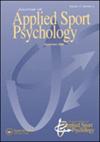收集叙述:运动员在全球大流行期间准备东京夏季奥运会的经历
IF 3.2
2区 心理学
Q2 HOSPITALITY, LEISURE, SPORT & TOURISM
引用次数: 5
摘要
2019冠状病毒病大流行和东京奥运会的推迟,给奥运水平的运动员带来了前所未有的挑战。鉴于自世界卫生组织(WHO)宣布2019冠状病毒病(COVID-19)为全球大流行以来运动员所面临的逆境,心理弹性的构建是理解这段时间运动员经历的一个有用框架,弗莱彻和萨卡尔将其概念化为个体抵御压力源负面影响的能力。本研究的目的是探讨加拿大运动员在2019冠状病毒病全球大流行期间准备东京夏季奥运会的经历。对20名加拿大运动员进行了个人和团体项目的采访。与会者谈到了他们在整个大流行期间照顾自己和培养复原力的多种方式,强调了管理逆境所涉及的复杂性。四种叙述阐明了运动员的经历:环境的关键作用,社会支持的本质,不仅仅是运动员的重要性,以及学习反思一个人的生活的相关性。对于这些运动员来说,奥运会资格、职业阶段、身心健康以及获得资源等因素影响了他们对大流行的体验,这表明在探索复原力时,个人因素和环境因素都很重要。重要的是,运动员们并没有独自度过难关,而是得到了强有力的支持。因此,运动心理咨询师可以通过提供专业知识和考虑运动员的个人情况来帮助运动员发展恢复力。概要:在2019冠状病毒病大流行期间,对20名准备参加东京奥运会的运动员进行了采访,并提出了四种叙述。所有运动员都根据自己的个人情况,以不同的方式经历大流行,并通过社会支持、反思和体育以外的追求来应对逆境。应用启示为教练、运动员和运动心理学从业者开发资源,使他们有能力理解和开发一个既具有挑战性又具有支持性的高水平运动环境。认识到社会支持在学习如何有效地反映和发展高水平运动之外的追求方面的重要性本文章由计算机程序翻译,如有差异,请以英文原文为准。
Gathering narratives: Athletes’ experiences preparing for the Tokyo summer olympic games during a global pandemic
Abstract The COVID-19 pandemic, and the Tokyo Olympic Games postponement, has created unprecedented challenges for Olympic level athletes. Given the adversity athletes have faced since the World Health Organization (WHO) declared COVID-19 a global pandemic, the construct of psychological resilience is a useful framework for understanding athlete experiences during this time, and is conceptualized by Fletcher and Sarkar as an individual’s ability to protect against the negative effect of stressors. The purpose of this research was to explore the experiences of Canadian athletes preparing for the Tokyo summer Olympic Games during the COVID-19 global pandemic. Interviews were conducted with 20 Canadian athletes across individual and team sports. The participants spoke of the multiple ways they were taking care of themselves and developing resilience throughout the pandemic, highlighting the complexity involved with managing an adversity. Four narratives illuminate the athletes’ experiences: the critical role of context, the essential nature of social support, the importance of being more than an athlete, and the relevance of learning to reflect on one’s life. For these athletes, factors such as Olympic qualification, stage of their career, physical and mental health, and access to resources influenced their experience of the pandemic, demonstrating the importance of both individual and environmental factors when exploring resilience. Importantly, the athletes did not manage this adversity on their own, but received strong support. Therefore, sport psychology consultants can assist an athlete’s development of resilience by providing expertise and taking into account an athlete’s personal context. Lay summary: Twenty athletes preparing for the Tokyo Olympic Games during the COVID-19 pandemic were interviewed and four narratives are presented. All athletes were experiencing the pandemic differently based on their personal circumstances and were managing the adversity with social support, reflection, and pursuits beyond sport. APPLIED IMPLICATIONS Develop resources for coaches, athletes, and sport psychology practitioners to become competent in understanding and developing a high-performance sport environment that is both challenging and supportive Recognize the importance of social support in learning how to effectively reflect and develop pursuits outside of high-performance sport Understand and develop resilience, in a way that promotes, rather than diminishes, mental health
求助全文
通过发布文献求助,成功后即可免费获取论文全文。
去求助
来源期刊
CiteScore
6.90
自引率
9.40%
发文量
39
审稿时长
>12 weeks
期刊介绍:
The Journal of Applied Sport Psychology (JASP) is a refereed journal designed to significantly advance thought, theory, and research on applied aspects of sport and exercise psychology. Submissions such as experimental studies, qualitative research, correlational studies, case studies, position papers, critical reviews, theoretical developments specific to applied research conducted in sport and/or exercise settings, or having significant applied implications to sport and exercise, are appropriate content for the JASP. Please see the recent Editorial for further details on the aims and scope of the journal. JASP is a non-proprietary journal that is an official publication of the Association for Applied Sport Psychology (AASP). The purpose of AASP is to promote the development of psychological theory, research, and intervention strategies in sport and exercise psychology. The Journal is a direct benefit of membership in AASP and is received by its student and professional members. The publisher of the JASP is Taylor and Francis, Inc. of Philadelphia, PA.

 求助内容:
求助内容: 应助结果提醒方式:
应助结果提醒方式:


